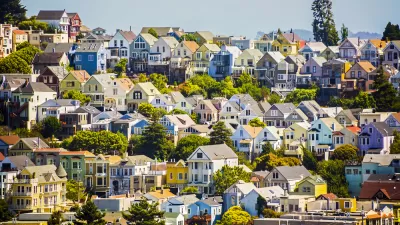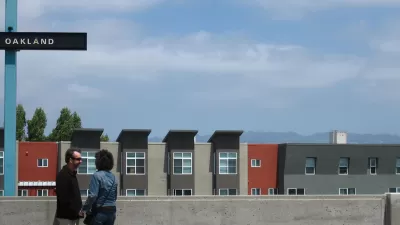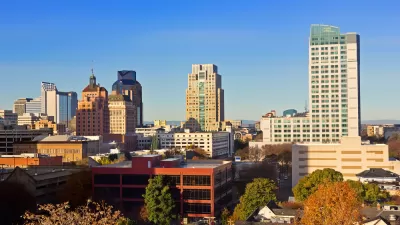While redevelopment-related displacement is the result of broader market forces and policy decisions, restaurants and cafes have become an emotionally charged flashpoint for the debate over gentrification.

Writing in the San Francisco Chronicle, Soleil Ho examines their role as a restaurant critic in the gentrification of Bay Area neighborhoods like the Mission. “In my embrace of the new blood that’s come into the neighborhood, have I been actively complicit in normalizing its gentrification?” Ho asks.
To put it in concrete terms, a ‘hot’ neighborhood with gyms, specialty coffee shops and exciting restaurants advances the interests of the urban growth machine, including landlords who set the prices of retail rents, investors who have interest in certain chefs or restaurateurs, and politicians who benefit from shifts in their districts’ demographics.
Ho acknowledges that restaurants, critics, and food reporters fit neatly into that urban growth machine, helping to fuel the popularity and growth of various areas. “Restaurants don’t cause gentrification themselves, but when you live in a neighborhood that’s on the cusp of it, every new coffee shop feels like a jump forward on the doomsday clock of your eventual displacement.” Restaurants and cafes have become a powerful symbol of much broader, systemic forces. And while critics can’t single-handedly stop neighborhood change or displacement, Ho hopes that acknowledging their role in the dynamics of gentrification is one step towards redirecting the impacts of redevelopment to more equitable ends.
FULL STORY: I'm a restaurant critic. Am I fueling gentrification in the Bay Area?

Planetizen Federal Action Tracker
A weekly monitor of how Trump’s orders and actions are impacting planners and planning in America.

Vehicle-related Deaths Drop 29% in Richmond, VA
The seventh year of the city's Vision Zero strategy also cut the number of people killed in alcohol-related crashes by half.

As Trump Phases Out FEMA, Is It Time to Flee the Floodplains?
With less federal funding available for disaster relief efforts, the need to relocate at-risk communities is more urgent than ever.

Index Measures Impact of Heat on Pedestrian Activity
When heat and humidity are high, people are more likely to opt for cars when possible.

Most Public Lands Are Safe — For Now
A proposal to sell off federally owned lands was removed from the Republican spending bill on procedural grounds.

Hundreds of New Yorkers Hospitalized Due to Extreme Heat
A brutal heat wave is causing hospitalizations for heat-related illnesses, an increasingly common threat as summers get warmer.
Urban Design for Planners 1: Software Tools
This six-course series explores essential urban design concepts using open source software and equips planners with the tools they need to participate fully in the urban design process.
Planning for Universal Design
Learn the tools for implementing Universal Design in planning regulations.
JM Goldson LLC
Custer County Colorado
Sarasota County Government
City of Camden Redevelopment Agency
City of Astoria
Transportation Research & Education Center (TREC) at Portland State University
Camden Redevelopment Agency
City of Claremont
Municipality of Princeton (NJ)





























